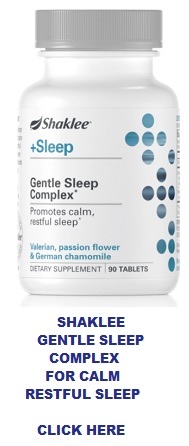Sleep Apnea - Diagnosis and Treatment
There are several possible treatments for sleep apnea, but selection of the proper treatment will depend on various factors.
If you are looking for the information on the following:
|
Diagnosis and treatment of sleep apnea are two very important steps in bringing sleep apnea under control.
 Some people believe that loud snoring is indicative of sleep apnea but this isn't always true. Snoring does accompany some cases, but not all. If you think you are suffering from sleep apnea and you have a sleeping partner, that partner can help you make an initial diagnosis.
Some people believe that loud snoring is indicative of sleep apnea but this isn't always true. Snoring does accompany some cases, but not all. If you think you are suffering from sleep apnea and you have a sleeping partner, that partner can help you make an initial diagnosis.
Your sleeping partner needs to write down the number of times there is a disruption in your breathing throughout the nigh. It's easy to tell because you'll either stop breathing, or you'll make gasping, choking or snorting sounds as you attempt to get your breath back. Making notes about your snoring sounds, patterns, and frequency can also be helpful. You can also use a tape recorder set on "Record" while you sleep.
The majority of sleep apnea occurs in men aged 40 or older who are also
overweight. If you fall into this category and you know you've
experienced sleep apnea symptoms, your doctor likely will suspect sleep
apnea. If in doubt, your doctor can look for obstructions in the nose
and mouth and examine your throat and nose using either an endoscopy or
an X-ray. A CT scan of the neck and head is another diagnosis tool.
Should more information be needed, an absolute diagnosis can easily be
confirmed by spending a night in a sleep center so that your sleeping
pattern can be monitored.
The most common treatment option for individuals diagnosed with sleep
apnea is use of a CPAP machine, CPAP standing for Continuous Positive Airway Pressure machine.
The machine is attached to a mask with a plastic tube measuring several
feet in length. The mask fits over the nose and/or mouth and while
asleep, a continuous supply of air set at a specifically prescribed pressure is forced through the
tube which helps keep the airway open. A CPAP machine can generally only be gotten through a prescription from your doctor. They ARE expensive, but the benefits of treating sleep apnea with a CPAP machine are more than worth it if you have sleep apnea, and most health and medical insurance plans will cover some of the cost.
There is also a surgical procedure that can remove troublesome tissue
from the nose, throat or mouth. Some patients may find that their jaws
need to be reconstructed.
If you are diagnosed with sleep apnea, you can self-treat. The most effective type of self-treatment is weight loss. Simply losing 10% of
your body can make a dramatic difference. You will also notice a difference if you stop smoking and consuming alcohol. If you use
sedatives, that too should be discontinued. In addition, you should get yourself on a regular sleep schedule, one in which you can sleep during
nighttime hours. If you prefer sleeping on your back, it's time to switch to sleeping on your side.
There's a apnea mouth piece you can use to help with sleep apnea. It works while sleeping by opening the airways and realigning your jaw or tongue.
There are benefits and disadvantages associated with each of these
treatments for sleep apnea and you should thoroughly discuss these with
your doctor before proceeding. Just remember that you've got to do
something because your sleep apnea will not go away on its
own.
Natural Sleep Aid
|
You will find what you are looking for here
Home - Sleep and Health
Web Page Copyright 2021 by Donovan Baldwin
Sleep Apnea Diagnosis and Treatment
Page Updated 12:49 PM Saturday, October 9, 2021
|

